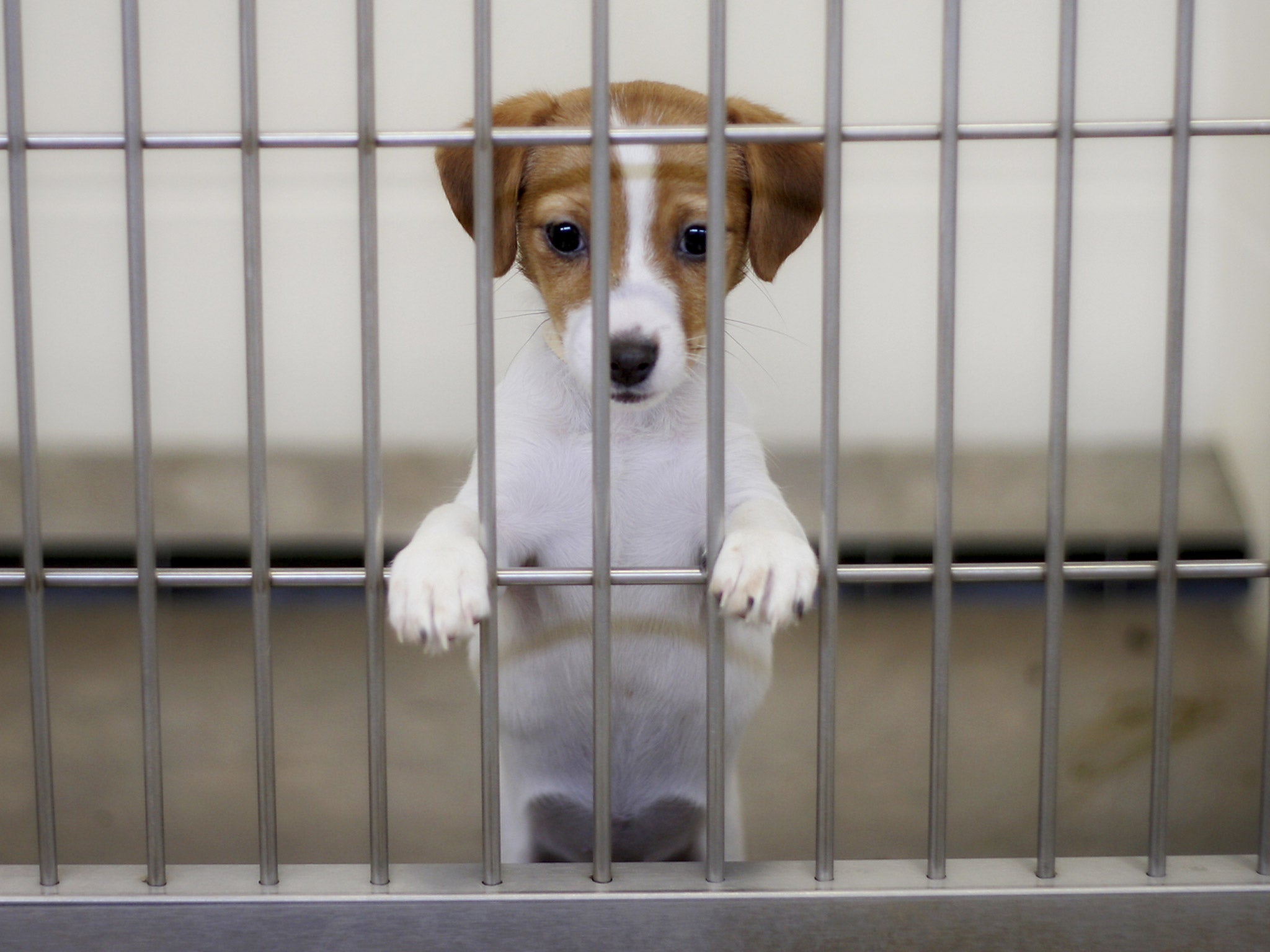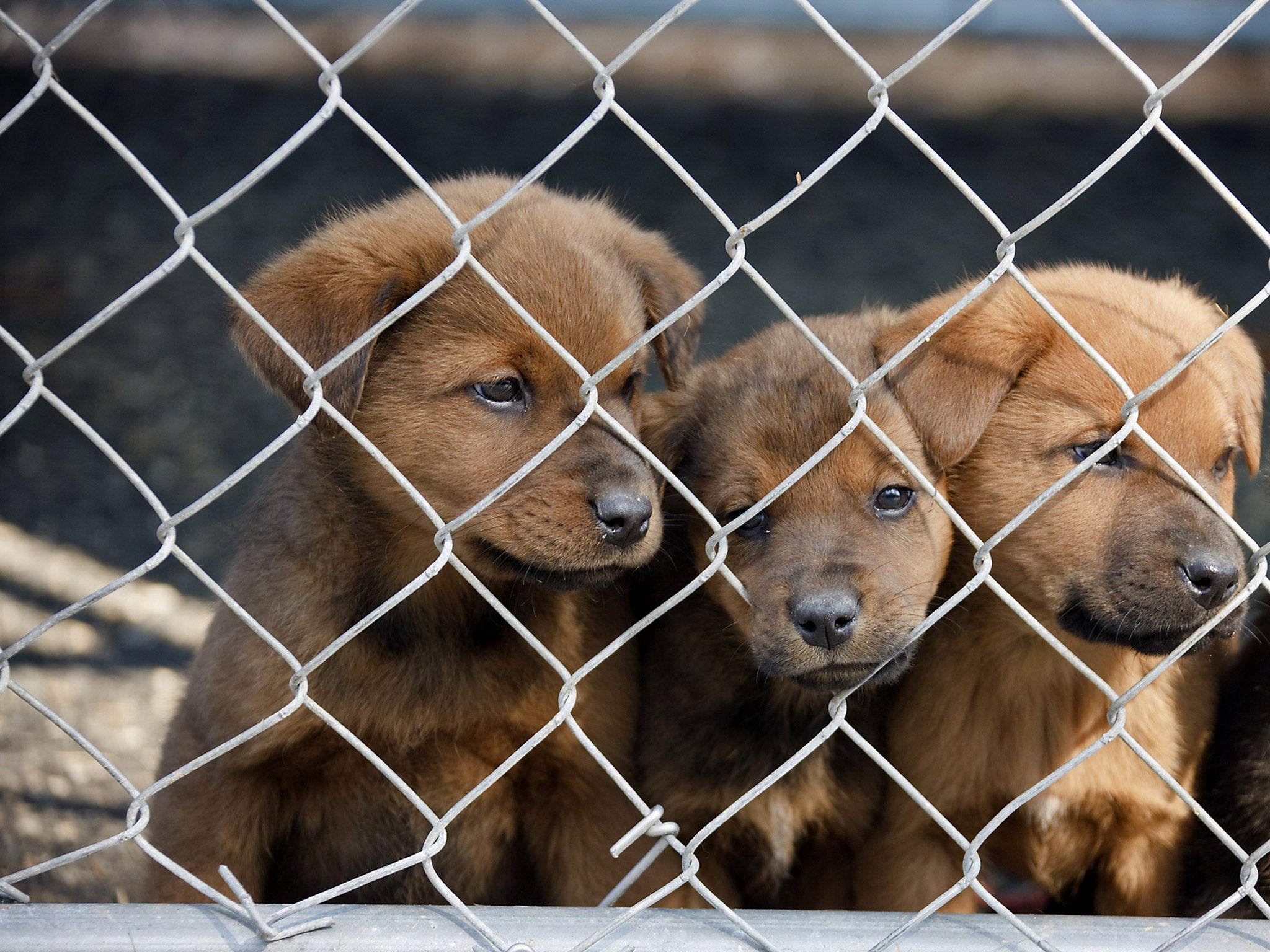The devastating reality of puppy smuggling in the UK
Little is being done to stop the illicit trade of puppies, despite the many voices campaigning against it. As Marie Carter writes, it’s a brutal industry that some dog lovers may be unwittingly supporting

Your support helps us to tell the story
From reproductive rights to climate change to Big Tech, The Independent is on the ground when the story is developing. Whether it's investigating the financials of Elon Musk's pro-Trump PAC or producing our latest documentary, 'The A Word', which shines a light on the American women fighting for reproductive rights, we know how important it is to parse out the facts from the messaging.
At such a critical moment in US history, we need reporters on the ground. Your donation allows us to keep sending journalists to speak to both sides of the story.
The Independent is trusted by Americans across the entire political spectrum. And unlike many other quality news outlets, we choose not to lock Americans out of our reporting and analysis with paywalls. We believe quality journalism should be available to everyone, paid for by those who can afford it.
Your support makes all the difference.The trade of puppies within and into the UK from abroad is a tragedy that continues to play out unabated. Unless we listen to the growing body of voices campaigning against it, this nefarious trade will continue, particularly as it is still largely hidden and inadequately policed.
Unsuspecting and ill-informed people buying pups from a “man in a van”, or even in a home environment, can tacitly be supporting the illicit trade. However, they are also victims, as the heartache may come in the form of a sick dog that may succumb to a brutal and disease-ridden start in life. It’s likely that emotional turmoil will accompany financial pressure in the form of huge vet bills from caring for the sick pup.
As with puppy farming, “designer” dogs popularised by celebrities such as French Bulldogs, Pugs and Chihuahuas make up 82 per cent of those smuggled into the UK according to a study by Dogs Trust. However, a combination of horrific in-transit conditions and lack of proper vaccinations mean one in 10 of these puppies are at risk of death. In the last six months, 382 puppies have been seized at the border through the scheme, with 90 per cent deemed too young to travel.
A few months ago, I adopted Nell, who is a 10-year-old Blenheim Cavalier King Charles Spaniel, from Dogs Trust. Nell came to the rescue centre from an Irish puppy farm where she was forced to have litter after litter in the name of profit. The vet said she’d had multiple litters, severe ear infections, most of her teeth had been removed and her muscles were hardly developed due to a complete lack of exercise over the years. Her pads are puppy soft. I call her my “grown up puppy”.
After coming out of her shell over a period of several weeks, Nellie is now amazingly people-loving and abundant with her licks and nuzzles. She loves her walks, and is inquisitive about her new world. Enjoying her new life Sophie, my other Cavalier, she has I suspect, visited more fun and interesting places that she has in her entire decade. But sadly, Nellie is far from alone in having been used and abused for profit by the puppy farm trade.
Janetta Harvey, author of Saving Susie-Belle and Saving Maya, explains: “When I wrote my first book on puppy farming four years ago, detailing the transformation that my dog Susie-Belle underwent as she recovered from spending years as a breeding dog in a puppy farm, to being our much-loved family pet, I hoped my writing would be a contribution to ending the cruelties in the puppy trade. Since then, and another two books later, some days it’s hard to believe the suffering will ever end.
“My three ex-breeding dogs all came out of the puppy farms with a range of physical and emotional damage which no dog should ever experience. If the people who bought their puppies could see the daily challenges, years after leaving the puppy farms that my dogs have to live with, I’d like to think most of them would not part with their money and buy the puppies. But until it’s made a lot harder to breed, buy and sell puppies, dogs like mine will continue to live, breed and die in puppy farms so that their puppies can be sold in what is a tragic industry for “man’s best friend”.

“As I’ve researched each book, I’ve talked to hundreds of people who have helped dogs who have been unfortunate enough to be caught up in this horrific industry. The problems the parent breeding dogs experience are extensive and awful and they never fully recover, even when rescued and given all necessary veterinary care, love and good homes. And it’s all caused just so that puppies can be traded as lucrative commodities.”
A report released by Battersea Dogs and Cats Home has revealed that less than 12 per cent of puppies in the UK are bred by licenced breeders, meaning that dogs could be sold from unsuitable premises, long before they are ready to leave their mothers. Dogs sold in pet shops and online, particularly where the mother cannot be seen, are likely to have been puppy farmed. However, puppy farmers and their ‘agents’ are becoming much more sophisticated and sometimes show an unsuspecting buyer an older dog with the pup that they pass off as the mother to allay suspicion.
Dogs Trust first highlighted the influx of puppies from Central and Eastern Europe in 2014, following a relaxation of the rules of the Pet Travel Scheme in 2012. Since December 2015, the charity has also provided care and support for illegally imported puppies through their time in quarantine.
Harvey says: “The vast scale of the international trade in puppies is something that’s going to require serious commitment from government if it’s to be brought under any kind of control. Education of the puppy buying public whilst essential, is not enough.
“The sums of money that are being made by those breeding and selling dogs, both legally and illegally, are mind boggling. The suffering of many thousands of dogs who are confined in an industry which is a complete betrayal of our best friends is horrifying to any normal thinking person.”
Yet, underage and unvaccinated puppies continue to travel here illegally from abroad and are destined to be sold via online adverts to unsuspecting members of the public.
Lisa Garner, another campaigner, says: “I adopted my Cavalier King Charles Spaniel Lucy in 2013. Lucy had been used on a puppy farm in Wales for the first five years of her life, living in dark conditions that no dog should ever endure, and with little regard for her health or wellbeing. Lucy was the mum of those cute puppies sold without their mum in pet shops, or advertised online to unsuspecting new owners. This is why we now campaign for change.”
Lisa has some excellent advice for anyone thinking about buying a puppy. “Lucy and I would always recommend that prospective new owners consider adopting a rescue dog instead; you can find most breeds and even puppies in rescue centres. This would not only hugely impact puppy farming as a whole, decreasing the demand, but also save lives.
“However, if you are looking to buy a puppy, seeing the mum interacting with the puppies in the environment they're born into is imperative – don’t accept any excuses! Also visit the breeder numerous times as any responsible breeder will be interviewing you as well as the other way around; as they will genuinely care where their puppy goes to,” Lisa explains.
“Young puppies should never be transported long distances into the UK, taken from their mums far too early and often sent hundreds of miles in appalling conditions, some not even making the journey alive. This yet again highlights the fact any prospective buyer should always see the puppy interacting with its mum. This option simply isn’t there when puppies are imported, instead the mum will be living her days in squalor back on the puppy farm, as Lucy did.”
You can support Dogs Trust’s life-saving work by donating online or purchasing Dogs Trust Christmas Gifts
Marie Carter is the Editor and Publisher of Pets Magazine (www.petsmag.co.uk), a lifestyle magazine for pet owners
Join our commenting forum
Join thought-provoking conversations, follow other Independent readers and see their replies
Comments